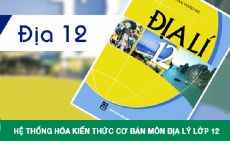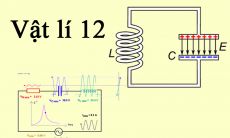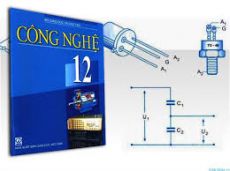Read the text and answer the questions
The school year in Vietnam runs from September through the first of June. It is divided into two semesters. The first semester begins in September and ends before the Lunar New Year, while the second one begins right after the first one and lasts until June the first. Children in Vietnam go to school six days a week from Monday to Saturday and a typical school day runs from 7:00 to about 11:30 in the morning. Vietnamese students are expected to take school very seriously and to work hard. Most periods begin with a small test. The teacher calls on some students to stand and answer a few questions to check their understanding of the last lesson.
After school, Vietnamese students take part in a lot of activities. Some students play sports. Soccer, table tennis, and badminton are the most popular. Others enjoy going swimming. A few students like music and movies. They often practice playing musical instruments in the music hall or go to the cinema with their friends to see the latest films. In addition, some students play video games or computer games or stay at home to help their parents. The after-school activities above help students find friends with similar interests, develop their talents, and sometimes even discover their career goals.
Câu 11 : How many semesters are there in the Vietnamese school year?
Hãy suy nghĩ và trả lời câu hỏi trước khi xem đáp án
Lời giải:
Báo saiCó bao nhiêu học kỳ trong năm học Việt Nam?
A. 1
B. 2
C. 3
D. 4
=> Chọn đáp án B
Giải thích: The school year in Vietnam runs from September through the first of June. It is divided into two semesters.
Dịch: Năm học tại Việt Nam diễn ra từ tháng 9 đến đầu tháng 6. Nó được chia thành hai học kỳ.
Câu 12 : When does the Vietnamese school year start?
Hãy suy nghĩ và trả lời câu hỏi trước khi xem đáp án
Lời giải:
Báo saiNăm học Việt Nam bắt đầu khi nào?
A. sau Tết Nguyên đán
B. Tháng 6
C. Tháng 9
D. trước Tết Nguyên đán
=> Chọn đáp án C
Giải thích: The first semester begins in September and ends before the Lunar New Year.
Dịch: Học kỳ đầu tiên bắt đầu vào tháng 9 và kết thúc trước Tết Nguyên đán.
Câu 13 : How long does the typical school day in Vietnam last?
Hãy suy nghĩ và trả lời câu hỏi trước khi xem đáp án
Lời giải:
Báo saiMột ngày học ở Việt Nam kéo dài bao lâu?
A. 4 giờ rưỡi
B. 5 giờ
C. 5 giờ rưỡi
D. 6 giờ
=> Chọn đáp án A
Giải thích: Children in Vietnam go to school six days a week from Monday to Saturday and a typical school day runs from 7:00 to about 11:30 in the morning.
Dịch: Trẻ em ở Việt Nam đi học sáu ngày một tuần từ thứ Hai đến thứ Bảy và một ngày học thông thường kéo dài từ 7:00 đến khoảng 11:30 sáng.
Câu 14 : In which paragraph does the information “Vietnamese students take part in a lot of after-school activities.” appear?
Hãy suy nghĩ và trả lời câu hỏi trước khi xem đáp án
Lời giải:
Báo saiThông tin “Học sinh Việt Nam tham gia rất nhiều hoạt động sau giờ học” hiện ra ở đoạn nào?
A. đoạn 1
B. đoạn 2
C. cả đoạn 1 và đoạn 2
D. Tất cả đều không chính xác.
=> Chọn đáp án B
Giải thích: After school, Vietnamese students take part in a lot of activities.
Dịch: Sau giờ học, sinh viên Việt Nam tham gia rất nhiều hoạt động.
Câu 15 : The word “latest” in paragraph 2 has the closest meaning with ___
Hãy suy nghĩ và trả lời câu hỏi trước khi xem đáp án
Lời giải:
Báo saiTừ “lastest" trong đoạn 2 có nghĩa gần nhất với ___.
A. khiêm tốn nhất
B. lâu đời nhất
C. mới nhất
D. dài nhất
=> Chọn đáp án C
latest = newest: mới nhất
Câu 16 : What is the benefit of the after-school activities?
Hãy suy nghĩ và trả lời câu hỏi trước khi xem đáp án
Lời giải:
Báo saiLợi ích của các hoạt động sau giờ học là gì?
A. làm giàu kiến thức cho học sinh
B. giúp học sinh tìm được những người bạn có cùng sở thích
C. có nhiều kinh nghiệm hơn
D. giúp học sinh học tốt hơn
=> Chọn đáp án B
Giải thích: The after-school activities above help students find friends with similar interests, develop their talents, and sometimes even discover their career goals.
Dịch: Các hoạt động sau giờ học ở trên giúp học sinh tìm được những người bạn có cùng sở thích, phát triển tài năng và đôi khi còn khám phá mục tiêu nghề nghiệp của họ.
Đề thi HK1 môn Tiếng Anh 7 năm 2021-2022
Trường THCS Hồ Xuân Hương














